For Tribal Lands Ravaged by COVID-19, Broadband Access Is a Matter of Life and Death

This opinion piece was originally published in Arizona Central.
If anyone doubted the importance of the Internet before the COVID-19 pandemic, those doubts have vanished like toilet paper at Kroger. During this time, the Internet has proved to be a lifeline, delivering the latest coronavirus health and emergency updates, connecting people to coworkers and bosses, and facilitating online classes.
But this is only the case for those lucky enough to have access. The American Library Association says seven in 10 residents on rural tribal lands remain without access to fixed high-capacity broadband. Making matters worse, massive swaths of tribal land don’t even have a cellphone signal, much less a broadband Internet connection.
No Internet access means no access to the economic opportunities the Internet holds. In 2018 alone, the Internet sector accounted for $2.1 trillion of the U.S. economy. But during this pandemic, many residents of rural Indian Country don’t have the luxury of dreaming up online business plans.
They are instead fearful for their lives and the lives of their loved ones who lack access to solutions like telehealth or online counseling during this time of isolation.
A lack of access leaves us behind
The Internet was always Continue reading
Announcing the Launch of the Global Encryption Coalition
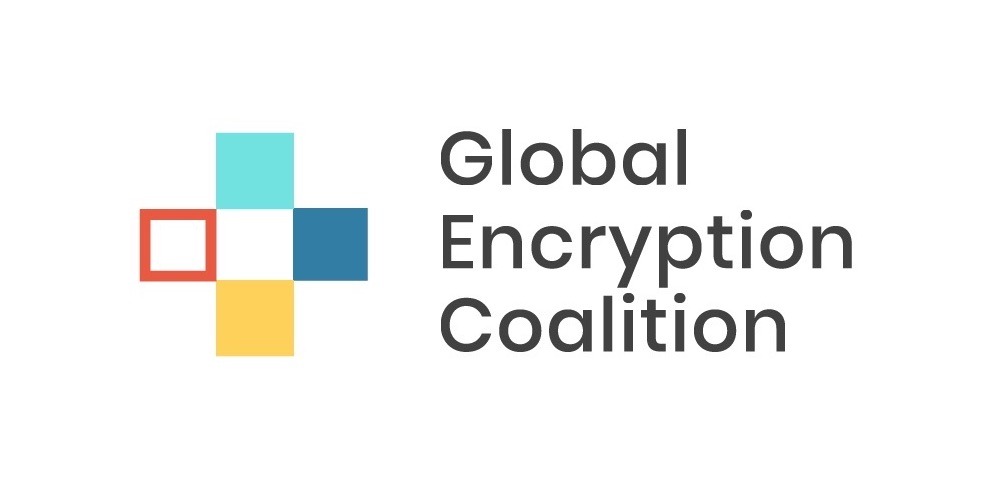
Today, more than 30 civil society organizations joined in launching the Global Encryption Coalition, to promote and defend encryption in key countries and multilateral gatherings where it is under threat. The new coalition is led by a Steering Committee consisting of the Center for Democracy & Technology (CDT), the Internet Society, and Global Partners Digital.
“The spread of COVID-19 has underlined the necessity of secure, private internet communications. Those who are fortunate enough to have strong internet connections are likely sharing increasing amounts of sensitive data online. At the same time, governments around the world are considering policies that put the security of that data at risk,” said Greg Nojeim, CDT’s Senior Counsel and Director of the Freedom, Security and Technology Project. “Encryption enables people to have private and secure digital lives.”
Working together with a membership that will quickly grow to include companies and technologists, CDT and the Coalition will help activists on the ground in key countries where it is under threat, like Canada, Australia, India, and Brazil, beat back proposals that would weaken encryption. “The Coalition will alert technologists to encryption threats around the world, and create mechanisms through which they can deliver expert analysis Continue reading
The Internet Is Resilient Enough to Withstand Coronavirus – But There’s a Catch

Earlier this year, as COVID-19 began to dominate our lives, the world turned to the Internet. This sudden shift to distance learning, working from home, and families sheltering in place drove up online streaming demand, placing additional load on Internet application platforms like Zoom, Netflix, and educational tools such as Kahoot. There was also a dramatic traffic increase across supporting network providers.
Faced with the specter of millions of daily Zoom calls and endless hours of Netflix binging, many wondered if the Internet could handle the strain of such rapid traffic growth and increased latency. Would it cause a catastrophic failure of the Internet? Our answer then: not likely.
But were we right? As the world is now more than a month into mandatory lockdowns and stay-at-home orders, with anticipated growth in application platform usage, media consumption, and overall Internet traffic, we can now state:
“No – increased Internet usage will not cause a catastrophic Internet failure.”
As expected, the Internet has remained resilient. There is no single “Internet” to catastrophically fail, thanks to its foundational “network of networks” architecture.
This architecture means that many interconnected participants all have a role in keeping the Internet resilient:
- Subscriber (“last Continue reading
Encryption: The Digital PPE We All Need

In the midst of a global pandemic, Internet security can be a matter of life and death.
Think of how critical the Internet has been to address the COVID-19 public health crisis. It has allowed half the world fortunate enough to have access to stay on top of critical public health updates and stay in touch with loved ones at a safe distance. Some can even continue activities like distance education, work from home, and access vital telehealth services.
But what if it weren’t safe to do these things? Would the world be as willing to follow social isolation measures?
Encryption keeps billions of people and countries secure online every day. It protects the integrity of news online, keeps your banking information out of the hands of criminals, and allows communications over messaging and videoconference platforms to stay confidential.
That’s a good thing. With people spending more time online than ever, cyber criminals are targeting the increasing amount of private data and commercially or government sensitive information traveling across the Internet. We’ve already seen proof in the corresponding rise in criminal activity over the last few months. The United States Federal Bureau of investigation, for instance, said cybercrime reports Continue reading
The Week in Internet News: Hackers Revamp Malware With COVID-19 Messages
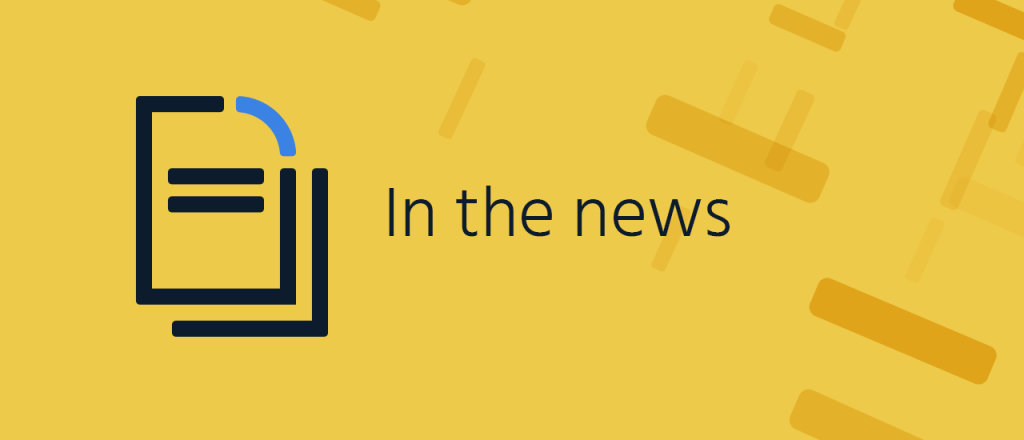
Taking advantage: Cyberattackers are reconfiguring the Remcos trojan, which allows them full access to victims’ computers, to include COVID-19 warnings in spam and phishing emails, Security Boulevard reports. “With the economy directly affected by the pandemic, people pay more attention to emails pretending to offer solutions, loans and other types of financial support. Another effective approach is to scare people with threats of account closures or company furloughs.”
The impact of a shutdown: An ongoing phone and Internet service shutdown in the Kashmir region is hurting the ability to distribute information and supplies during the COVID-19 pandemic, Greater Kashmir says. “People in need of essentials used to reach out to us on our helplines which have turned defunct,” said the chairman of an aid agency. “We used to make phone calls to our existing 750 beneficiaries for conveying them about timings to pick up their quota of essentials. But suspension of mobile networks has disturbed this entire process.”
Cooperative Internet service: The Christian Science Monitor has a story about small rural cooperatives building their own Internet services. Cooperatives, which are private businesses owned by customers, are common in parts of the U.S. Midwest, some providing electricity and Continue reading
Internet During Shutdown: Do We Need More Internet?

The Internet Society India Chennai Chapter organized a virtual roundtable in March, a few days after the Indian government announced a three-week nationwide lockdown. The virtual roundtable was a conversation on the importance of keeping the Internet open, and on the ways in which the Internet community could contribute to COVID-19 response and recovery in India and around the globe.
The virtual roundtable brought together a wide range of Internet stakeholders, including Andrew Sullivan, Jane Coffin, Mike Godwin, Yrjö Länsipuro, Wolfgang Kleinwächter, Olivier Crepin-Leblond, Sébastien Bachollet, Samiran Gupta, and Glen McKnight, as well as members of the Chapter from civil society and the private sector.
Some key highlights and takeaways from the virtual roundtable include the following:
The COVID-19 pandemic underscores the importance of the Internet. Without access, people are unable to communicate with family members and health workers, and participate in online learning and remote work.
The pandemic has clearly exposed the inequalities in Internet access and affordability – the digital divide across the region. Connecting the billions of people who are not yet connected must be a priority. At the same time, their privacy and autonomy must be protected.
Internet technologies can help us fight against the pandemic. Continue reading
Internet Society-Chatham House Collaboration: How Is Consolidation Changing the Internet?

For the past couple of years, here, at the Internet Society, we have been thinking about Internet consolidation. After releasing the 2019 Global Internet Report: Consolidation in the Internet Economy, we understood our limitations and the complexity of the issue. To this end, we decided to partner with Chatham House and reach out to the community of researchers and academics, seeking their input to learn more. This resulted in a long process to create a special issue of the Journal of Cyber Policy, including more than 40 proposals for articles, various peer-review cycles and many edits from the authors.
The selection process was tough. We had to weigh in a broad range of ideas and perspectives, which touched virtually all aspects of the Internet economy. And while hard choices had to be made, we are also confident we made the right ones. The level of quality, creativity, and interest that is incorporated in each and every research paper is truly outstanding. For this we are also grateful for the amazing support we have received from our community in spreading the word, for submitting proposals, and to the broad range of experts who have participated in the review of Continue reading
You Can Do It! Learn How to Extend the Internet to Your Community

Every day, people around the world are caring for their neighbors by bringing them online. A lifeline for so many, the global COVID-19 has shown us that the Internet is now more important than ever. Yet nearly half the world’s population still has no access.
Driven by the desire to connect their communities in any way they can, people around the world are getting involved and building networks in new and innovative ways that complement traditional Internet/telecommunication access solutions. Do-it-yourself solutions built by the community, for the community.
Anyone can help build the Internet.
Not sure where to start? There’s a whole community of people out there who can help you get started. Together you’ll be able to learn how to build a network to serve your community (you CAN do it!), help talk to your government about sound policies to connect your community, or share new ideas. Maybe you’ll be able to create a new solution to connect people to the open Internet.
Your expertise counts. Everyone can get involved and learn from one another.
Need more inspiration? Here’s a story from Lillian Achom. Lillian started out with nerves and self-doubt about what she could contribute, but over Continue reading
The Week in Internet News: Classroom in a Car

Searching for a signal: CNN has a story about a teacher in rural Virginia who drives 20 minutes to find a good WiFi signal in order to work. The middle school history teacher is one of about 18 million U.S. residents who lack access to high-speed broadband, according to the Federal Communications Commission. The teacher “lives in a valley between two mountains, where the only available home internet option is a satellite connection. Her emails can take 30 seconds to load, only to quit mid-message. She can’t even open files on Google Drive, let alone upload lesson modules or get on a Zoom call with colleagues.”
Demanding access: Meanwhile, in Oakland, California, hundreds of teachers and students are calling for free access to the Internet, demanding that the school district and mayor “take all necessary measures” to ensure that students have access, KTVU reports. “There is no equity in education for our most vulnerable students if all Oakland families do not have access to the internet,” said Keith Brown, president of the Oakland Education Association, said.
Legislating access: In the U.S. Congress, Senate Democrats are introducing a bill that would create a new $4 billion fund for schools Continue reading
Our Work to Make the Internet for Everyone Marches On
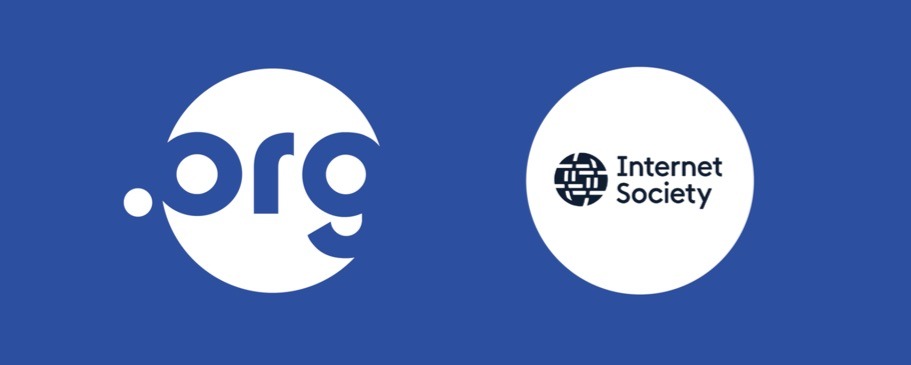
Over the past several months the Internet Society has been working on a transaction to sell Public Interest Registry (PIR), operator of .ORG and other top-level domains, to Ethos Capital. Under PIR’s registry agreements, the Internet Corporation for Assigned Names and Numbers (ICANN) had to consent to this indirect change of control. ICANN has now announced that it does not consent to the transaction.
I am, of course, disappointed by ICANN’s decision, though I am pleased it was finally reached. ICANN took much longer than it should have done to vote on the transaction. In my view, ICANN stepped outside its remit by acting as a regulator it was never intended to be. What began as a routine change of indirect control – the type ICANN has expeditiously approved on multiple occasions in the past – resulted in months and months of review and analysis. The outcome does not seem consistent with ICANN’s prior decisions in similar cases. It should concern the Internet community that ICANN has shown itself to be much more susceptible to political pressure than its limited mandate would recommend.
Nevertheless, ICANN has now rendered a clear decision. This brings to a close a period Continue reading
Nominations Open! Jonathan B. Postel Service Award 2020

Do you know someone who has made an outstanding contribution to Internet development?
Nominate them for this year’s Jonathan B. Postel Service Award!
Each year, the Internet Society presents the prestigious award to an individual or organization that, like Jon Postel, has made significant contributions to the technological development of the Internet.
The award commemorates Jon Postel’s extraordinary stewardship in the course of his 30-year career in networking.
The chosen candidate will be presented with a USD20,000 honorarium and the signature crystal engraved globe at a global conference with Internet technical leaders later this year.
Previous award winners include Steven Huter for fostering local Internet communities globally, Kimberly Claffy for her contribution to Internet measurement, Kanchana Kanchanasut for accelerating Internet development in Thailand, and Nii Quaynor for driving the spread of the Internet across Africa.
Special emphasis is placed on candidates who have supported and enabled others in addition to their own contributions.
Help us recognize the extraordinary people who have committed themselves to the technological development, growth, and strength of the Internet!
Nomination period ends on 5 June 2020. For questions, email [email protected].
Image of Community Network Champions ©Atul Loke/Panos Pictures for the Internet Society.
Now Is Not the Time to Put Everyone’s Security on the Line

This opinion piece was originally published in SC Magazine.
With social distancing the norm, we’re spending more time on the Internet doing more important things than ever – eg, working, learning, banking, trading, shopping, seeing the doctor and having family time – as well as streaming, gaming and interacting with our connected speakers.
Shouldn’t we be certain, especially now, that no one is eavesdropping, stealing or modifying our data?
Encryption is the primary means of accomplishing that goal. Using encryption, data is scrambled so that only the intended people can see the data. It’s right there under the covers most of the time when you’re on Wi-Fi, Bluetooth, 4G and browsing most websites.
Unfortunately, most online services today still do encryption in a piecemeal manner. Sections along the path are encrypted, but typically there are points along the way where the data is unencrypted and processed in some way before being re-encrypted and sent along.
The good news is that many messaging services – eg, WhatsApp, Telegram and Signal – offer end-to-end encryption, where only the sender and intended recipient can “see” the message. Everyone else along the path – even the company providing the service – can’t see inside. The Continue reading
From Isolation to Preparedness and Empowerment in Rural Argentina

Nelso Rodríguez is a nurse and one of the founders of the community network in El Cuy, Patagonia, Argentina.
A little over a year ago, there was no Internet or mobile connection in my isolated town of El Cuy, population 540.
After several unsuccessful attempts by the provincial government to bring in satellite Internet – which was of very poor quality, at very high costs – our people began to demand an Internet for all.
After a newspaper article exposed our lack of connectivity, the Internet Society offered to help us set up a community network. There was a fiber-optic cable passing through a village just 50 kilometers away, which also had a tower with an Internet signal. So, a group of residents volunteered to dig the trenches for the anchors and lay the concrete. The Internet Society financed all the material and provided the technical expertise. After making a connection between two antennas, we managed to bring community Internet to El Cuy.
Our network has been up and running since February 2019, reaching almost 400 residents in El Cuy and another 100 in the nearby town of Cerro Policía. This has been spectacular in so many ways!
Our community Continue reading
Kids Need Encryption Too

With most of the world on lockdown, children are likely spending more time than ever online. Between virtual classrooms and keeping up with friends on social media, many kids are depending on the Internet to maintain a semblance of normal life amidst the global health crisis.
While parents may worry about how this might affect their children’s well-being, experts have warned that the surge in screen time could also expose kids to safety risks online more often.
In Asia-Pacific, a recent UNICEF report found that 32% of children between 10 to 17 years old in Bangladesh have faced cyberbullying, violence, and harassment online. Meanwhile, a McAfee study in India found that 70% of youngsters have posted their personal details on the Internet, making them an easy target for cybercriminals.
Earlier this month, the Internet Society ran a short webinar, Kids, the Internet and COVID-19, to show parents how they can protect their kids’ privacy and security online through encryption.
Encryption is a way of ‘scrambling’ information to make it unreadable to malicious actors who might want to access it, and works much like the codes that we used as children to send secret messages to each other – but better. Encryption protects our emails, our Continue reading
Discussion Paper Now Available about the New-IP Proposal
In the run up to the ITU World Telecommunication Standardization Assembly (WTSA-20) later this year there has been some discussion about a proposal called the “New IP.” It is positioned as a top-down architecture to solve a number of use cases that are currently been developed in the ITU-T’s Future Network 2030 Focus Group.
The Internet Society is carefully following the developments in the run-up to WTSA-20. We are trying to understand if and how the New IP works with the Internet as we know it, if it actually solves problems that cannot be solved in the Internet, and, if the ITU-T is developing standards, where other standards development organizations (SDOs) have change control.
In order to get a sense of the environment we commissioned a discussion paper, “An analysis of the ‘New IP’ proposal to the ITU-T.” The paper helps inform us and the broader community whilst the public debate around these proposals shapes up. It also aims to inform and shape the discussion from the Internet’s Society’s perspective. Eventually the debate around it will inform our position and the potential further evolution of the discussion paper itself.
We would like to thank Chip Sharp for authoring the paper, with input Continue reading
The Week in Internet News: Schools Still Face Equipment Challenges for Virtual Learning
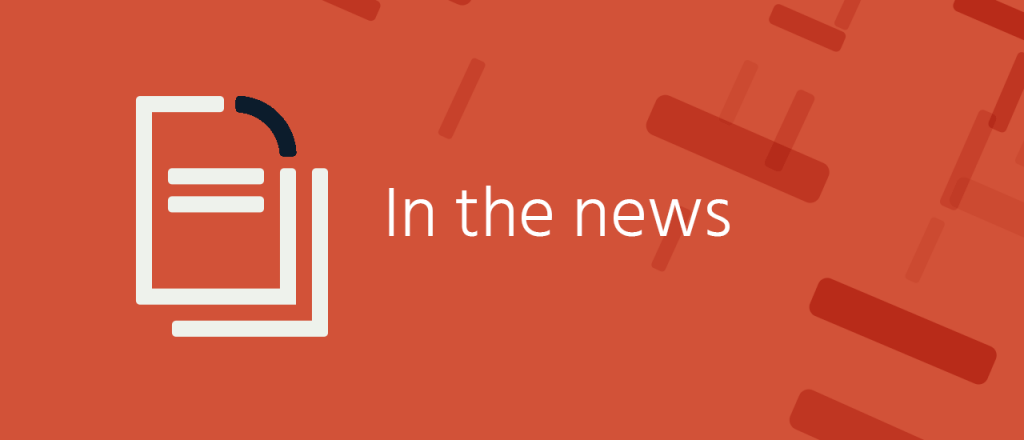
Equipment shortages: As schools in the U.S. and other countries attempt to switch over to virtual learning during the COVID-19 pandemic, some are still trying to get students Internet access or devices to use to access the Internet. In Chicago, only about half of the 115,000 public school students who need a computer have received one, WBEZ reports. Another 43,000 computers will be handed out, and 10,000 have been ordered and will be coming “over the next few weeks.”
Equipment shortages, part 2: In California, the state is planning to distribute laptops, Chromebooks, or tablets to more than 70,000 students so they can participate in distance learning, MercuryNews.com reports. The state has requested funding and devices from companies, business leaders and philanthropists around the state.
Getting creative: Some schools are exploring alternatives when students don’t have Internet access or devices, NBC News says. A teacher in Tennessee turned to using a copy machine to print out packets and mail them to students. In Arkansas, where 23 percent of households lack Internet service, a local PBS affiliate is providing daily television programming tied to the state’s distance learning curriculum.
Pumping up encryption: Popular video conferencing app Zoom will Continue reading
Final Results of the 2020 Board Elections and IETF Selection
The Internet Society Elections Committee is pleased to announce the final results of the 2020 elections and the IETF selection for the Board of Trustees.
The voting concluded on 3 April. The results were announced and the challenge period was opened on 6 April. The deadline to file challenges was 15 April. One challenge was filed in the Chapters election. In accordance with the Procedures for Selecting Trustees, Internet Society President Andrew Sullivan, the chairs of the Nominations and Elections committees, and the other members of the board discussed the merits of the challenge. In the end, the board decided that the challenge was without merit and rejected it.
Therefore, the election results announced on 6 April stand:
- Ndeye Maimouna Diop and George Sadowsky have been elected by Chapters, and
- Ted Hardie has been elected by Organization Members.
Also, following the process documented in RFC 3677, the Internet Architecture Board, on behalf of the IETF, has selected:
The term of office for all of the new Trustees will be three years, commencing with the 2020 Annual General Meeting, 1-2 August.
The Elections Committee congratulates all the new Trustees and expresses its gratitude once more to all Continue reading
On this 50th Earth Day, We Are Using The Internet To Change The World

50 years ago when the first Earth Day happened, the networks that would later form the Internet were only beginning.
20 years later, when Earth Day 1990 turned the celebration into a global event, the World-Wide Web existed only as a single website in Switzerland.
Today, the Internet is our lifeline. In a world locked down by coronavirus, the Internet is how we connect. It is how we communicate, collaborate, and create together. It is how we work and how we play. And on this Earth Day 2020, we will use the Internet to celebrate the 50th anniversary.
Each and every day, we are using the Internet to respond to climate change and other environmental issues:
- Scientists are collaborating and sharing their knowledge. They are finding new solutions and creating new programs.
- Projects are crowdsourcing vast amounts of data from regular people around the world (ex. Earth Challenge 2020)
- We are sharing ideas and learning from each other.
- Policy makers are learning what works in other regions.
- We are avoiding unnecessary travel and reducing our carbon footprint.
- Activists are joining in global movements.
- We are seeing that what affects someone in one part of the world may affect us Continue reading
The Week in Internet News: The Digital Divide During a Pandemic

The great divide: The continuing digital divide in the U.S. is hurting people as they try to shop, attend school, and work during the coronavirus pandemic lockdown, The Guardian says. Broadband Now estimates that 42 million U.S. residents don’t have Internet access, and M-Lab says that the majority of residents in 62 percent of the counties across the U.S. don’t have adequate broadband speeds.
The struggle is real: Meanwhile, students in rural Alabama are struggling to complete their schoolwork because a lack of Internet access, according to an Associated Press story at Enewscourier.com. In nine Alabama counties, less than 30 percent of the population has access. “We don’t want to leave 20 to 30 percent of our population behind just because of where they live,” said John Heard, school superintendent in Perry County.
The good news: Even with many people across the world working from home or attending school from home, the Internet is holding up, ZDNet reports. Fastly, an edge cloud computing provider, found that in the hard-hit New York and New Jersey area, Internet traffic jumped by nearly 45 percent in March, but download speeds decreased by less than 6 percent. In California, traffic Continue reading
Member News: Internet Society Chapters Focus on Connecting People During Pandemic
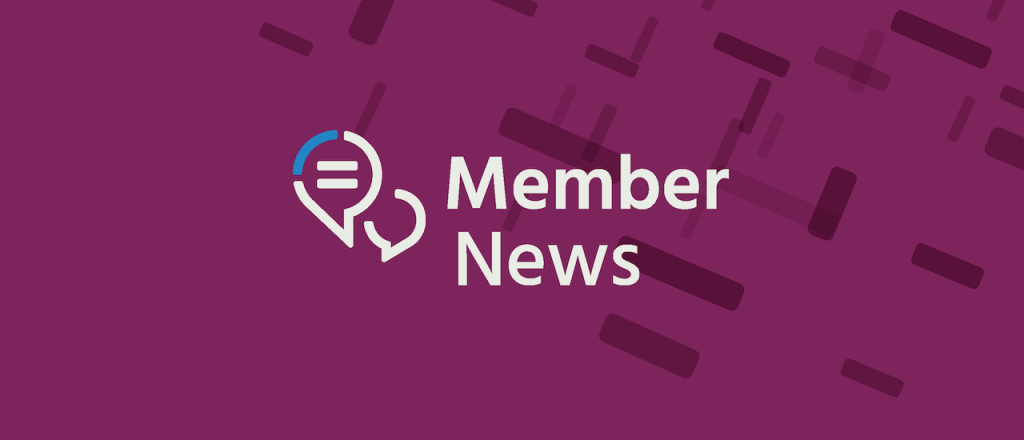
Staying connected: Several Internet Society Chapters are focusing on ways to help people stay connected while living under stay-at-home orders or following social-distancing guidelines related to the COVID-19 pandemic. The Netherlands Chapter has released a toolbox of open source tools to help people work from home.
Resources for the people: Meanwhile, the Dominican Republic Chapter has released a list of COVID-related resources for residents. The list includes information on virtual private networks, on teleworking, and on the country’s cybersecurity resources. The Chapter also released a set of recommendations for the government, for Internet service providers, and for other companies. For example, the Chapter recommends that ISPs offer flexible or low-cost service plans to customers during the pandemic.
Pandemic privacy: One of the many concerns during the COVID-19 pandemic is a loss of privacy as governments and private organizations track mobile phones as a way to monitor the spread of the virus and the effectiveness of social-distancing programs. The Canada Chapter notes that the pandemic has raised fears about the surveillance state. In Canada, the prime minister has ruled against cell phone surveillance for tracking the spread of the virus, but “if the virus rapidly spreads further, no doubt device tracking Continue reading